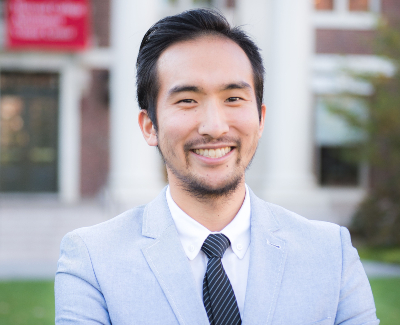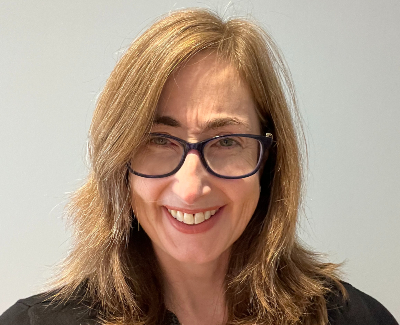by Jenna Somers
Assistant Professor of Leadership, Policy and Organizations Mark Chin and Professor of Leadership, Policy and Organizations Jennifer Russell joined the Department of Leadership, Policy and Organizations at Vanderbilt Peabody College of education and human development this fall. Chin graduated earlier this year from Harvard University with a doctorate in education. Russell comes to Vanderbilt from the University of Pittsburgh, where she was department chair and professor of educational foundations, organizations and policy. She is a senior fellow at the Carnegie Foundation for the Advancement of Teaching and earned her doctorate in education from the University of California, Berkeley.
Mark Chin
Mark Chin attended what many people would consider “good schools.” The label implies good test scores, high graduation rates and matriculation to good colleges, which lead to good jobs; but whether those metrics are enough to truly define a good school is, according to Chin, a good question to debate. He is a quantitative policy researcher who examines how schools affect students’ racial attitudes and sociopolitical preferences throughout their lives, motivated by the belief that key to addressing persistent disparities in society is uncovering how schools might reduce negative out-group prejudices, increase prosocial behavior and foster widespread commitment to advancing equity.

“The focus of my work on schools as places that could potentially change people to care about equity or have less racial prejudice is informed by my own experiences of attending ‘good schools.’” Chin said. “Often these schools are reflected by specific subgroups based on race and socioeconomic status, but whether they actually make more people engaged in society and care about other people doesn’t factor into the good school perception. That’s something we should talk about more because maximum education is seen as a democratizing force that leads to a more engaged citizenry. But often those notions are distilled into whether you went to a good college and got a good job, not whether you contribute to a more equitable society.”
Chin is interested in discovering the most effective and acceptable policies for improving equity in schools by examining how state and district-level policies are implemented and what affects their success. In his most recent work, Chin investigates school integration and school choice policies to understand how they expose students to more diverse settings, whether students end up having more positive racial attitudes and less racial prejudice, and whether long-term equitable outcomes result from changes in attitudes and preferences.
In a current study, funded by the Institute of Education Sciences at the U.S. Department of Education, Chin is examining the long-term effects of exposure to desegrated schools following the Supreme Court ruling in Brown v. Board of Education on white students’ racial attitudes and political beliefs as adults. He is interested in longitudinal behavioral and attitudinal changes because, according to Chin, whether those remain into adulthood would indicate whether the policy led to long-term equitable outcomes.
In another study, Chin examines the long-term school choice decisions of families when selecting schools during the transition from middle to high school. Past research has shown that school choice can perpetuate racial and socioeconomic segregation, but in Chin’s latest research, he finds that families’ choices over time aren’t as stable between middle and high school, which he sees as an encouraging sign that families may be more willing to choose schools that are farther from home but that promote greater racial and socioeconomic integration.
“I hope my work will change the research discourse to care more about outcomes that are not test scores and graduation rates, so that more research on school performance has a broader equity-focused lens.” Chin said. “I would love to see more data—any data—on students’ feelings about equity, the people in their school and the political climate, among other concerns. Those measures are not collected, but they could help to inform programs in schools that could foster greater equity, and I would love to work with school districts that care about these ideas and are willing to collect the data.”
Jennifer Russell
Research-practice partnerships in the form of improvement networks are a major focus of Jennifer Russell’s work. They pair diverse stakeholders in education at school and district levels with education researchers to solve or make progress on a specific problem of practice in education. Educators experiment with new methods, learn from data and share best practices across organizations with the goal of uncovering the root cause of a problem and developing the most effective strategies to address it.

In Russell’s 28 years of working in education, she has transitioned from being a public-school teacher to both a researcher participating in research-practice partnerships and then studying them as organizational systems. Most recently, she has been leading efforts to establish the field of improvement research within the education research enterprise. In collaboration with her colleague Don Peurach at the University of Michigan and with support from the Carnegie Foundation for the Advancement of Teaching, Russell created the Improvement Scholars Network, an affiliation of improvement researchers working to build connections within the field and amplify improvement research among education scholars. Peurach and Russell also co-edited the Foundational Handbook on Improvement Research in Education with Lora Cohen-Vogel at the University of North Carolina at Chapel Hill and Bill Penuel at the University of Colorado, Boulder.
Russell’s efforts to advance improvement research and its impact on student learning opportunities has led her to Vanderbilt and the Nashville Partnership for Educational Equity Research, a research-practice partnership between Metro Nashville Public Schools and Peabody College focused on the district’s core commitment to identify and eliminate educational inequities.
“I’m excited to be a part of PEER, build the field of improvement research in education at Peabody, and train future researchers who engage in this work and are committed to addressing equity issues,” Russell said.
Russell has been dedicated to advancing equity throughout her career. She initially developed a passion for this work through eight years of teaching in public schools, first as a Teach for America corps member and special education teacher in Oakland, California, and then as a special education teacher in Franklin, Tennessee.
“The majority of my students in Oakland lived in poverty and were students of color, and they felt the effects of inequities every day. There are also many equity issues in special education, such as disproportional identification and lack of support for students with disabilities,” Russell said. “My initial interest in policy, improvement work and equity came from my experiences as a teacher.”
Those experiences inform her work with other research-practice partnerships, including the Institute for Learning and Dallas Network for School Improvement at the University of Pittsburgh. The network is a collaboration of 14 secondary schools in the Dallas Independent School District, educators and leaders at the district and school levels, and researchers. Their goal is to promote teachers’ use of student-centered instructional routines in English classrooms to support literacy. Most of the students are from racially and socioeconomically marginalized communities, and the student-centered routines help to create more equitable learning opportunities by having students engage in active learning to develop their literacy skills.
This project is part of a larger initiative—the Bill and Melinda Gates Foundation’s Networks for School Improvement initiative—which supports 34 networks across the country. The networks focus on one of three different concerns: instructional improvement, early warning and response for students at risk of academic and attendance problems, and postsecondary match and transition to postsecondary learning.
The Gates Foundation asked Russell and her colleagues to support the initiative through the Network Health Project by administering an annual survey to all participants in the 34 networks and visualizing the results in ways that help network leaders continuously improve network operations. By analyzing the data collected annually, she and her colleagues study the 34 school networks to understand how they develop and function as organizations. The data from this study will contribute to the development of an empirically grounded theory of networked improvement.
Building on her work in the Networks for School Improvement initiative, Russell is excited to bring her focus on collaborative improvement research to Nashville. “I collaborate in many research-practice partnerships nationally,” Russell said, “but it’s especially meaningful to join Peabody and PEER and have a greater impact locally on student outcomes, the work of teachers and issues of equity.”